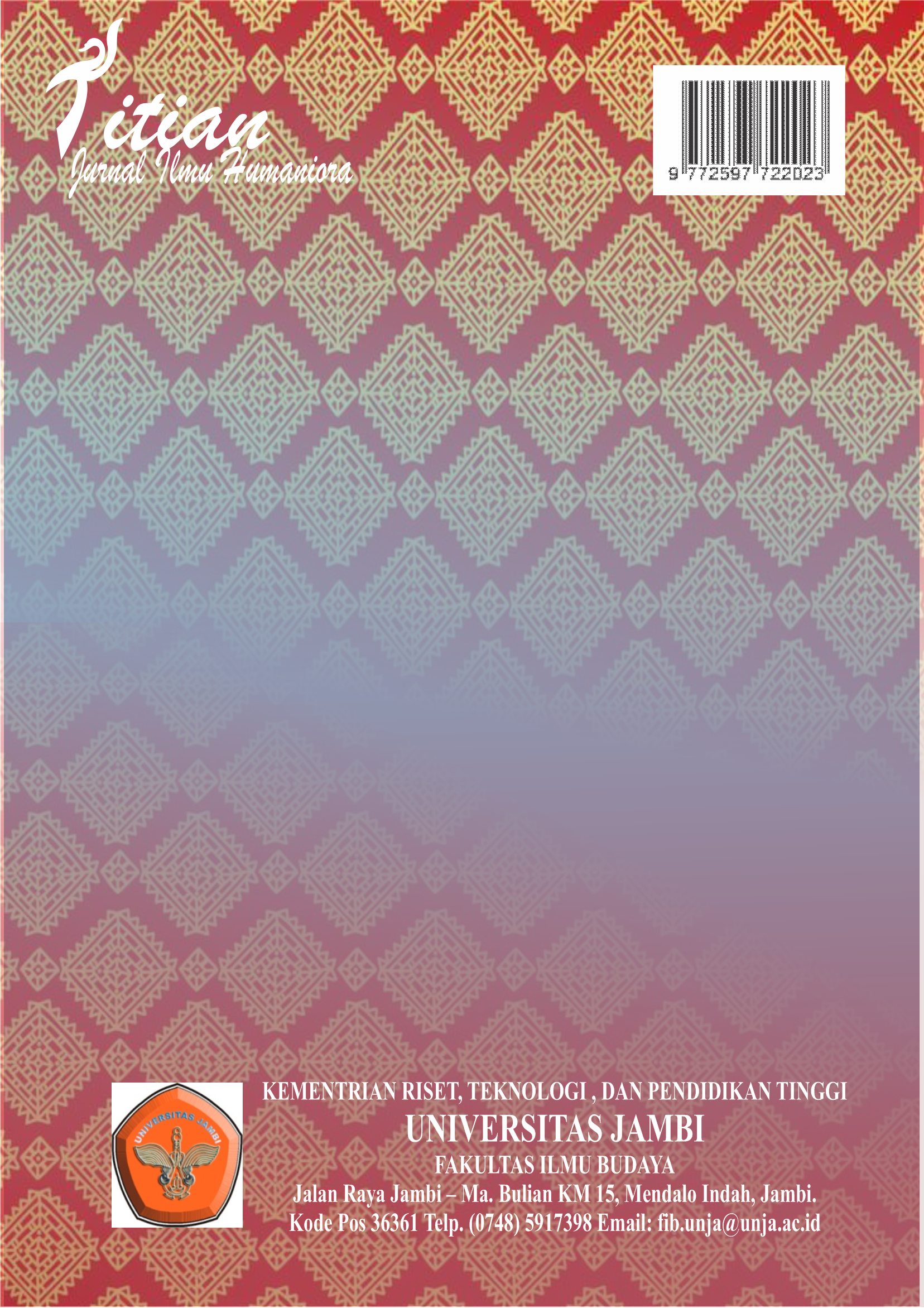Pandemi Covid-19 dan Transformasi Budaya Digital di Indonesia
DOI:
https://doi.org/10.22437/titian.v5i2.15309Keywords:
Covid-19, Transformasi, Budaya Digital, Media Sosial, Covid-19, Transformation, Digital Culture, Social MediaAbstract
This article aims to elaborate on the impact of the Covid-19 pandemic on the transformation of digital culture in Indonesia. Although digital transformation has occurred so far, the Covid-19 pandemic has also strengthened cultural change at the level of Indonesian society, which in turn created digital culture. In this context, digital culture is the result of thinking, creating and creating digital-based human works. However, the emergence of digital culture has had a positive impact, such as the development of a digital economy ecosystem and the strengthening of civic digital communication. While the negative impact can be seen from lifestyle changes due to the high dependence on social media. This research uses a literature study approach in elaborating the research topic. In the end, this study states that the impact of the Covid-19 pandemic has created a cultural shift from conservative to digital culture. Even so, changes in digital culture at the public level must be anticipated through a program to strengthen digital literacy.
Downloads
References
Agre, P. E. (2002). Real-time politics: The Internet and the political process. The information society, 18(5), 311-331.
Agung, I. M. (2020). Memahami Pandemi Covid-19 Dalam Perspektif Psikologi Sosial. Psikobuletin: Buletin Ilmiah Psikologi, 1(2), 68-84.
Al-Zaman, M. S. (2021). Social media and COVID-19 information in Bangladesh. Media Asia, 1-8.
Aziz, A., Islam, M. M., & Zakaria, M. (2020). COVID-19 exposes digital divide, social stigma, and information crisis in Bangladesh. Media Asia, 47(3-4), 144-151.
Bell, D. (2007). Cyberculture. The Blackwell Encyclopedia of Sociology.
Cvjetièanin, B. (2008). Challenges for cultural policies: the example of digital culture. Digital culture: The changing dynamics, 103.
Deuze, M. (2006). Participation, remediation, bricolage: Considering principal components of a digital culture. The information society, 22(2), 63-75.
Fitriarti, E. A. (2019). Urgensi Literasi Digital Dalam Menangkal Hoax Informasi Kesehatan Di Era Digital. Metacommunication: Journal of Communication Studies, 4(2), 234-246.
Gabryelczyk, R. (2020). Has COVID-19 Accelerated Digital Transformation? Initial Lessons Learned for Public Administrations. Information Systems Management, 37(4), 303-309.
Gere, C. (2009). Digital culture. Reaktion Books.
Khan, G. F., Swar, B., & Lee, S. K. (2014). Social media risks and benefits: A public sector perspective. Social science computer review, 32(5), 606-627.
Kompas.com. (2020). https://www.kompas.com/tren/read/2020/03/29/113704465/corona-dan-revolusi-ruang-virtual?page=all.
Kompas.com. (2021). https://tekno.kompas.com/read/2021/02/23/11320087/berapa-lama-orang-indonesia-akses-internet-dan-medsos-setiap-hari?page=all
Kim, R. Y. (2020). The impact of COVID-19 on consumers: Preparing for digital sales. IEEE Engineering Management Review, 48(3), 212-218.
Muskania, R., & Zulela, M. S. (2021). Realita Transformasi Digital Pendidikan di Sekolah Dasar Selama Pandemi Covid-19. Jurnal Pendidikan Dasar Nusantara, 6(2), 155-165.
Ngafifi, M. (2014). Kemajuan teknologi dan pola hidup manusia dalam perspektif sosial budaya. Jurnal Pembangunan Pendidikan: Fondasi dan Aplikasi, 2(1).
Pradana, Y. (2018). Atribusi kewargaan digital dalam literasi digital. Untirta Civic Education Journal, 3(2).
Pratiwi, N., & Pritanova, N. (2017). Pengaruh literasi digital terhadap psikologis anak dan remaja. Semantik, 6(1), 11-24.
Sabrina, A. R. (2018). Literasi Digital Sebagai Upaya Preventif Menanggulangi Hoax. Communicare: Journal of Communication Studies, 5(2), 31-46.
Theresia, M. (2021). Peribahan Sosial Budaya Masyarakat Korea Selatan Akibat Pandemi covid-19. OISAA Journal of Indonesia Emas, 4(1), 21-27.
Van de Donk, W., Loader, B. D., Nixon, P. G., & Rucht, D. (Eds.). (2004). Cyberprotest: New media, citizens and social movements. Routledge.
Wienarni, L. (2019). Pengembangan Birokrasi Digital Di Indonesia. Jurnal Ekonomi, Sosial & Humaniora, 1(02), 24-32.
Zed, Mestika. 2008. Metode Penelitian Kepustakaan, Cetakan 1. Jakarta: Yayasan Obor Indonesia.
Downloads
Published
How to Cite
Issue
Section
License
Copyright (c) 2021 Bambang Arianto

This work is licensed under a Creative Commons Attribution-ShareAlike 4.0 International License.































